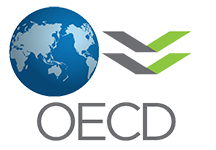GROUND TRUTH SOLUTIONS
Supporting Humanitarian Actors to Systematically Listen<br>and Respond to the Voices of Affected People
Lebanon
Projects
DanChurch Aid (DCA) and Save the Children:
Listen Learn Act Project
As part of the Listen Learn Act project funded by European Union Humanitarian Aid (ECHO) with DanChurchAid and Save the Children Denmark, Ground Truth is looking to measure and improve compliance with the Core Humanitarian Standard (CHS) through the eyes of affected people. The CHS sets out nine commitments that all humanitarian organisations should adhere to. The project is being piloted in four different countries: Nepal, Mali, Ethiopia and Lebanon.
In Lebanon, the Listen Learn Act team is working with Save the Children, CARE International, Association Najdeh and Kayany, who are all working in different ways with the Syrian refugee population. Save the Children is providing basic shelter settlements in the Bekaa valley, near the Syrian border. CARE International is offering community training and urban regeneration for host communities in Tripoli, in Northern Lebanon. Association Najdeh is working on protection and counselling support services in the Shatila refugee camp, while Kayany runs non-formal schools and provides educational programmes to young Syrians in the Bekaa valley.
Ground Truth designed individual feedback mechanisms to collect regular feedback from the constituents of the respective projects, which centre around the CHS commitments. Questions include the timelines of the various services provided, the involvement of constituents in programme delivery and the extent to which constituents are treated with respect and dignity. Data collection began in May 2016. The project was completed in February 2017.
Project Partners
OECD Field Survey and Analysis Project
International donors and humanitarian actors committed themselves at the 2016 World Humanitarian Summit to increase the efficiency and effectiveness of humanitarian assistance. The OECD secretariat commissioned Ground Truth Solutions to track first-hand how people affected by humanitarian crises – as well as the humanitarian field staff who implement humanitarian programmes – perceive the reforms spelled out in the Grand Bargain document.
Ground Truth Solutions developed three survey instruments to measure both the implementation and the effects of these reforms.
- The goal of the first set of surveys is to gather feedback from affected people on the provision of humanitarian aid and track how perceptions evolve over time.
- The second survey instrument collects feedback from field staff on how Grand Bargain themes are being carried out and provides a baseline to track their progress and impact.
- The third survey instrument looks at relations among international agencies and local partners in the context of empowering the latter to play a larger role in humanitarian relief operations.
The reports of surveys conducted in Lebanon can be downloaded below.
Downloads
Project Partner
Mixed Migration Platform (MMP)
Ground Truth Solutions is one of the seven NGOs that have jointly launched a mixed migration platform to deliver research, analysis and policy recommendations for a better understanding of mixed migration patterns in the Middle East and Europe and to enhance the protection of, and information available to, people on the move. The Mixed Migration Platform (MMP), funded by the UK’s Department for International Development and the Switzerland’s Federal Department for Foreign Affairs (FDFA), is an initiative that aims to provide quality information and protection-sensitive analysis to improve decision-making, both for people on the move through the Middle East and Europe, as well as for host governments and humanitarian organisations who are involved in the response.
Ground Truth Solutions’ contribution to the platform is a real time collection and analysis of feedback about the perceptions of people in different stages of displacement (borderlands, transit countries and countries of final destination). The focus of the surveys is on people’s experience as refugees, asylum seekers and migrants and their perceptions of the assistance they receive from humanitarian agencies.
In Lebanon, the data collection targets distinct groups of refugees – Syrian refugees in Lebanon, Palestine refugees from Syria (PRS) and Palestine refugees from Lebanon (PRL) – across all five governorates of the country. A first quantitative round of surveys were conducted in March 2017, followed by focus group discussions, delving deeper into issues surfaced in the survey. A final second survey round was completed in July 2017. The issued reports are available below.
Downloads
Project Partners
Never miss a story and get regular updates from Ground Truth Solutions
Subscribe to our

